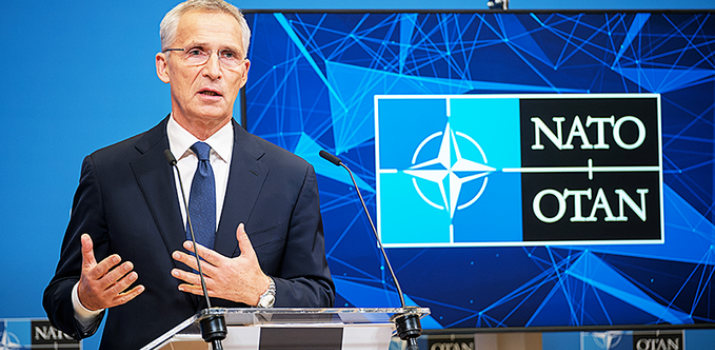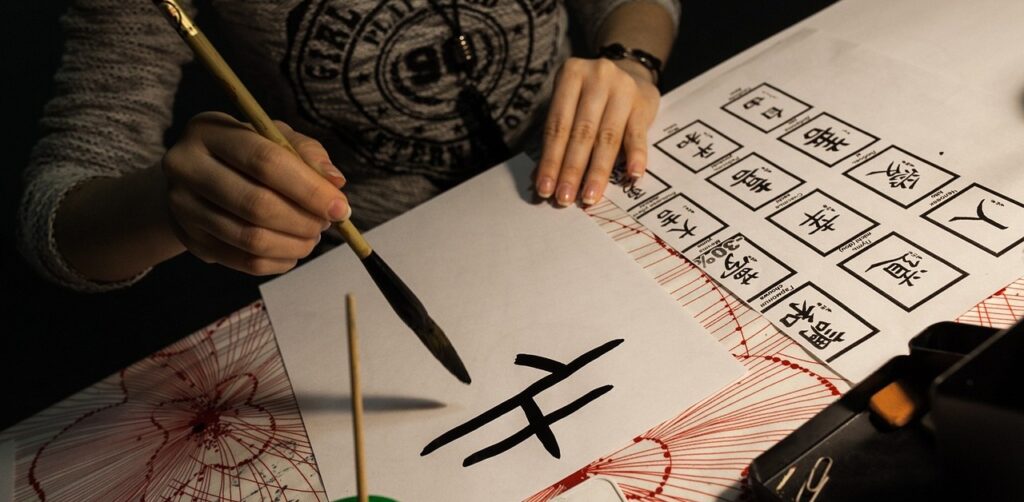NATO’s secretary-general has warned that Russia is mobilizing more soldiers and acquiring more weapons as it prepares to ramp up its military campaign in Ukraine.
In a speech in the South Korean capital of Seoul on Monday, NATO Secretary General Jens Stoltenberg warned that Putin is preparing new attacks, mobilizing more troops, and acquiring more weapons and ammunition.
Putin’s goal of controlling Ukraine remains unchanged, claims Stoltenberg, and a victory for Russia “would make the world more dangerous.” He called on NATO allies and partners like South Korea to give Ukraine “as much support as possible” as “military support today makes it possible to reach a peace agreement tomorrow.”
Today is day 343 of Russia’s war on Ukraine.
Source: Radio Poland, Radio Gdańsk
The Baltic states and Poland have all voiced support for Ukraine’s request to completely exclude all Russian and Belarusian athletes from the upcoming 2024 Olympics in Paris.
The Latvian Olympic Committee has already threatened to boycott the Games, with Latvian Foreign Minister Edgars Rinkevics declaring that “Latvia will not participate in the Games together with the aggressor country.”
Latvia, its Baltic neighbors Estonia and Lithuania, and Poland have all come out in support of Kyiv against the presence of Russians and Belarusians at the Olympic Games.
Last week, Polish sports minister Kamil Bortniczuk said that he „cannot imagine” the possibility of Russians and Belarusians participating in the Olympic Games.
On Wednesday, the International Olympic Committee (IOC) proposed a plan to allow athletes from Russia and Belarus to compete under a neutral flag, provided that they do not “actively support the war in Ukraine,” writes AFP. Kyiv has strongly protested the measures, with some calling the IOC’s proposal “immoral and misguided.”
Source: Radio Gdańsk
Poland’s president has signed a new bill that officially recognizes and regulates remote work and also gives employers the right to perform sobriety checks on employees.
Legislation approved by President Andrzej Duda on Monday now officially includes remote work in Poland’s Labor Code, defined as “work performed entirely or partly in a place chosen by the employee and agreed on with the employer, including at the employee’s place of residence, in particular using means of remote communication.”
Under the new legislation, staff will be allowed to work remotely on a full-time or part-time basis, depending on the needs of the given employee and employer, including in emergency situations such as the outbreak of an epidemic or when the worker needs to look after a relative, reporters were told.
Remote-work arrangements will be required to be available to parents of children up to the age of four, parents and carers of people with disabilities, and pregnant women. The rule will apply in all cases except those instances, such as the work of emergency services personnel, where work cannot be conducted remotely.
The new legislation also grants employers and the police powers to test employees for alcohol and similar substances if it is necessary to protect the life and health of workers, other people, or property.
Source: Radio Poland, PAP
A rare comet is set to make an appearance in the night sky this week, with tomorrow expected to be the best date to catch a glimpse from locations in Poland.
Comet C/2022 E3 (ZTF), which last visited our solar system some 50,000 years ago, is currently approaching Earth and should be visible tomorrow.
According to Przemysław Rudź of the Polish Space Agency (Polska Agencja Kosmiczna), the blue-green comet will be located “just above the horizon” and should be visible most of the night. The comet should reach its greatest brightness on February 2, when viewers should look for it near the constellation of Ursa Minor, headed toward Camelopardalis, the constellation of the giraffe.
It is unknown if the comet will be visible to the naked eye, so Rudź and other astronomers advise attempting to view the comet using “binoculars on a tripod or, ideally, a small telescope.”
Rudź, together with Sławomir Nichczyński, hosts the program „Pomorze Nauka Świat” on Radio Gdańsk, which can be heard on air every Wednesday at 11:05.
Source: Radio Gdańsk
Construction is complete on a so-called “natural” playground in the district of Gdańsk Chełm, featuring structures made of living willow trees.
The natural playground consists of a mix of structures, including one large and two small gazebos, 40 meters of willow tunnel, and four small huts. A series of paths have also been laid out in the playground, along with flowerbeds to complement the other natural design elements.
According to Anna Jach-Falkiewicz, owner of Żywa Architektura, the company which designed the park, such spaces provide a variety of ecological benefits. The park “gives shade and prevents the formation of urban heat islands, creating a microclimate” while simultaneously supporting biodiversity as a haven for bees and other pollinators and providing a natural filter for soil, water, and air.
The Chełm district council financed the building of the PLN 50,000 natural park, which is located at ul. Cebertowicza 19.
Source: Radio Gdańsk
Weather
Today will be mostly cloudy and cold, with a chance for rain showers throughout the day and a strong breeze coming in from the west. Temperatures will be slighter warmer than yesterday, with highs of 5°C or 41°F dropping to a low of 2°C, or 35°F overnight. Similar weather is expected for tomorrow, with a chance for some snow tomorrow evening.
Elizabeth Peck





